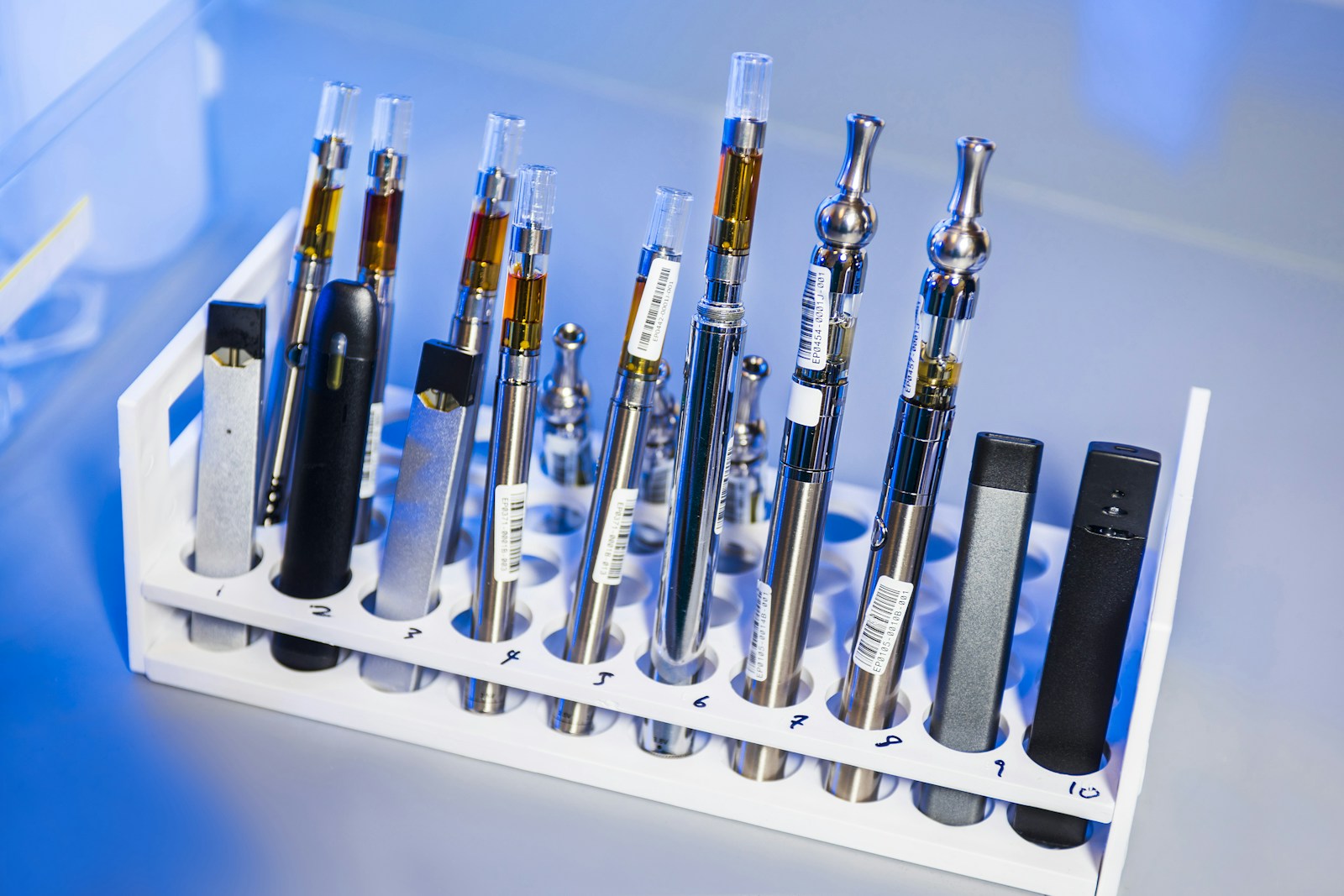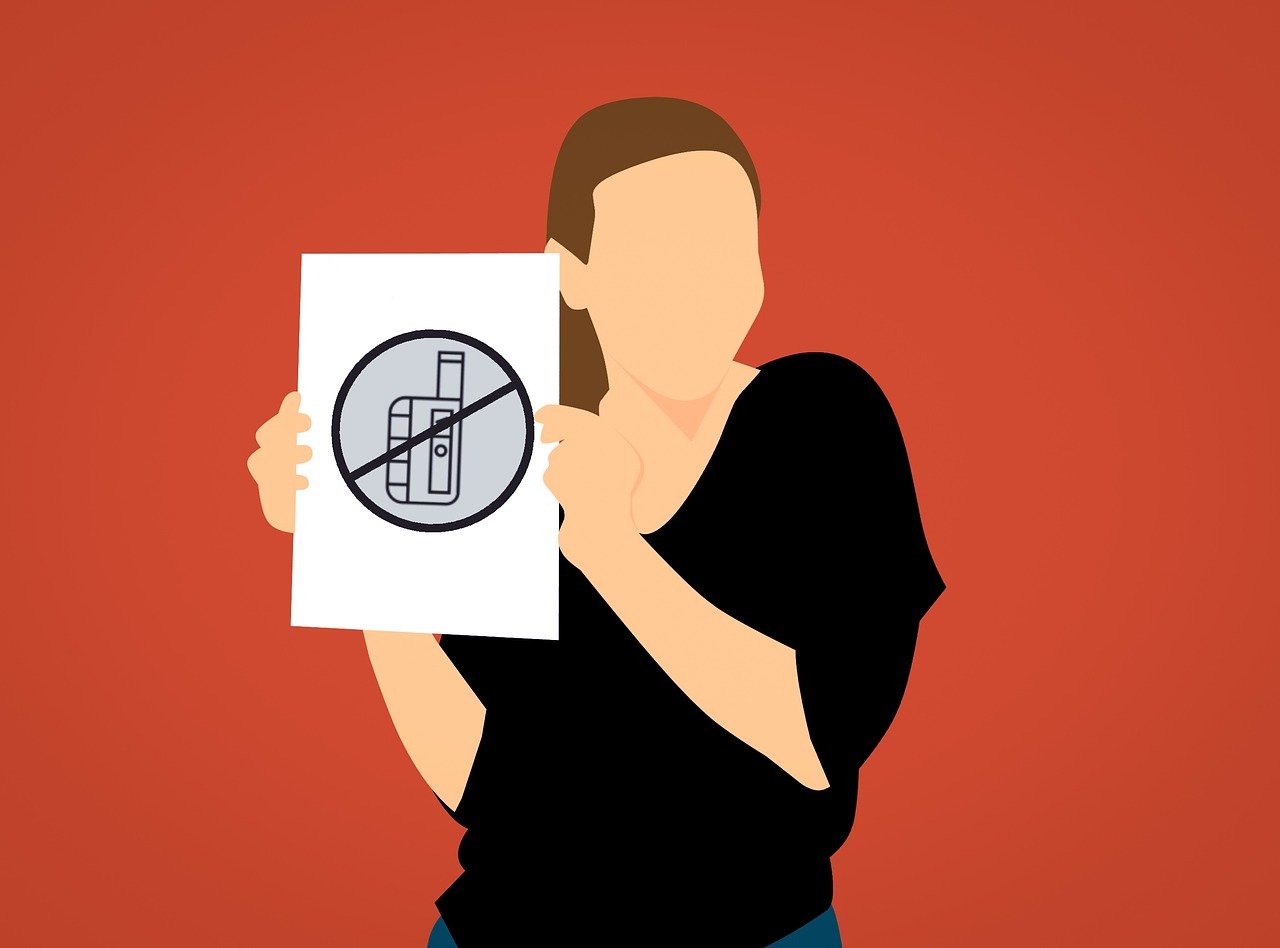Vaping has surged in popularity as an alternative to traditional smoking, but its impact on weight is a topic of growing interest and concern.
While some individuals use vaping as a tool to curb smoking-related weight gain, the question remains whether the act of vaping itself has any direct correlation with changes in body weight.
Understanding how vaping might affect one’s weight involves looking at the various components of e-cigarettes, such as nicotine, and their effects on the body’s metabolism and appetite.
The relationship between vaping and weight is not straightforward.
Nicotine, the addictive substance found in most e-liquids, can influence metabolism and suppress appetite, which might suggest a potential for weight loss or weight maintenance.
On the flip side, the behavioral aspects of vaping, along with users’ lifestyle choices, can also interact with these biological effects.
It’s crucial to consider both the behavioral patterns and the potential impacts of the ingredients in vape products when evaluating their overall health considerations, including any possible influence on weight.
Reader's Roadmap
Key Takeaways
- Nicotine in vaping devices may affect appetite and metabolism.
- The relationship between vaping and weight is nuanced, influenced by both behavior and substance effects.
- Exploring the overall health risks of vaping is vital, beyond its potential impact on weight.
Exploring the Link Between Vaping and Weight

Vaping’s impact on body weight is a growing concern that intersects with how nicotine influences appetite and metabolism.
This section uncovers if using e-cigarettes leads to weight gain or loss and compares the weight effects to traditional tobacco smoking.
The Effect of Nicotine on Appetite and Metabolism
Nicotine is a known appetite suppressant, and its interaction with the body can reduce the desire to eat by affecting hunger signals.
When someone inhales nicotine from e-cigarettes or traditional tobacco cigarettes, it can temporarily boost the metabolic rate. This increase in metabolism means the body burns calories a bit more quickly than usual.
However, this effect is often short-lived and may not be significant enough to result in long-term weight loss.
Does Vaping Cause Weight Gain or Loss?
When people switch from smoking traditional cigarettes to vaping, they’re still getting nicotine, which could mean their appetite remains suppressed.
However, not all e-cigarettes contain the same amount of nicotine. Weight changes depend on how much and how often someone vapes.
Studies show mixed results, with some vapers experiencing weight gain while others do not. Factors like lifestyle, diet, and the frequency of vaping play substantial roles in these varied outcomes.
Comparing Vaping to Smoking in Terms of Weight Impact
Comparing the weight impact of vaping and smoking tobacco cigarettes can be tricky.
Both deliver nicotine, which suppresses appetite. However, smoking tobacco is also associated with numerous health risks that can affect weight indirectly.
For example, smoking-related diseases can lead to weight loss or gain due to changes in health status.
In terms of vaping, some users may experience a reduced urge for snacking, potentially helping with weight management.
But it’s essential to remember the absence of a definitive link as individual experiences can vary widely.
Health Considerations of Vaping

Vaping is often viewed as a safer alternative to smoking, but it is important to understand the potential health impacts it has, especially concerning the lungs and cardiovascular system.
Respiratory and Cardiovascular Effects
Lung Health: The inhalation of vapor from e-cigarettes can impact lung health.
Although it lacks some of the harmful tar found in traditional cigarettes, vaping still introduces certain chemicals to the lungs that can lead to respiratory problems.
- Symptoms such as coughing, difficulty breathing, and in severe cases, EVALI (e-cigarette or vaping product use-associated lung injury) can manifest.
Cardiovascular Health: A common misconception is that vaping only affects the lungs. However, studies show that e-liquids can contain nicotine which increases heart rate and blood pressure, posing risks to cardiovascular health.
- Heart Disease: Vaping can contribute to the development of heart disease due to the strain it places on the cardiovascular system.
Understanding the Chemicals in E-Liquids
E-liquids are the substances vaporized in e-cigarettes, coming in various flavors that can entice users, particularly youth. A closer look reveals a cocktail of chemical ingredients:
- Nicotine: This addictive chemical is known for increasing heart rate and blood pressure.
- Flavorings: Certain flavoured e-liquids have been linked to health issues unrelated to their food-safe status when ingested.
The complexity of e-liquids’ chemical makeup leads to ongoing public health discussions.
Long-Term Health Risks of Vaping
The long-term health risks associated with vaping are still being studied, but early evidence suggests several concerns:
- Cancer: While the consensus is that vaping is less carcinogenic than smoking, the presence of chemicals such as formaldehyde in some e-liquids could pose a cancer risk with long-term use.
- Cardiovascular Disease: Prolonged exposure to nicotine and other chemicals found in vapes is associated with an increased risk of developing cardiovascular disease.
Behavioral Aspects of Vaping and Weight Control

Exploring the intersection of vaping and weight control uncovers a range of behaviors, from using vaping as a tool to suppress appetite to its potential challenges in quit attempts.
These behaviors hold significance for varied age groups, especially youth and college students, who may view vaping differently when it comes to managing weight.
Vaping as an Appetite Suppressant
Many individuals have turned to vaping, noting nicotine’s appetite suppressant qualities.
Nicotine stimulates a part of the brain that could curb the feeling of hunger, thus potentially aiding in weight control. This behavior can lead to a reliance on vaping to manage diet-related impulses.
- Nicotine content: Some argue there’s no substantial difference in vaping to lose/control weight based on nicotine content.
- Risk of habit forming: Using vaping as an appetite suppressant might develop into a habit, which could escalate to an addiction.
Habit Formation and Quitting Challenges
Vaping might initially be seen as a means to an end—kicking the habit of cigarette smoking.
However, the act of vaping itself can become habitual, creating its own challenges when individuals seek to quit.
- Behavioral routine: The hand-to-mouth action, akin to smoking, can become a deep-seated behavior, making it harder to break the cycle.
- Impulse control: For those trying to control weight, the impulse to vape can become intertwined with the desire to manage appetite, complicating efforts to kick the habit.
Vaping Among Youth and College Students
When considering adolescents and college students, the social aspects of vaping and perceived benefits for weight management could influence their vaping behaviors.
- Social influence: Among youth, the decision to vape can be heavily influenced by peer behavior and the desire for social acceptance.
- Perception of weight control: Students might perceive vaping as a modern method to prevent obesity, though the long-term effects are not well understood.
- Awareness and inclination: There’s a limited awareness among young people regarding vaping as a method to prevent weight gain. Health concerns and a lack of understanding about nicotine’s effects contribute to this limited view.
Nutritional and Lifestyle Factors
When considering the impact of vaping on weight, it is crucial for individuals to look beyond the act itself and consider their overall nutritional and lifestyle habits.
How one manages their diet and physical activity while vaping could play a significant role in their health and weight.
Diet and Exercise Considerations for Vapers
For vapers, it’s important to remember that while the act of vaping may not directly result in weight gain, neglecting a balanced diet and regular exercise could lead to health issues, including unwanted weight changes.
Vapers should ensure they incorporate a variety of food groups into their meals to receive essential nutrients, and they need to be cautious of falling into the trap of consuming excessive sugary foods, which can be tempting if vaping diminishes their sense of taste and smell, lessening the enjoyment of healthier food options.
- Balanced Diet: A mixture of fruits, vegetables, whole grains, lean proteins, and healthy fats.
- Regular Exercise: At least 150 minutes of moderate aerobic activity or 75 minutes of vigorous activity each week, plus strength training sessions.
Managing Caloric Intake and Healthy Eating
One’s food intake, particularly calories, plays a pivotal role in weight management.
Whether someone is vaping or not, monitoring their caloric intake, emphasizing healthy eating, and avoiding large portions of high-calorie foods are important steps to prevent weight gain.
Vapers, especially those using vaping as a means to cope with quitting smoking, might find themselves reaching for snacks more often. It’s key for them to be mindful of these habits.
Alternatives and Quitting Strategies
When one decides to quit vaping, they face the challenge of addressing nicotine cravings and the fear of possible weight gain.
To navigate these hurdles, various alternatives and strategies emerge as solutions for a successful transition.
Nicotine Replacement and Smoking Cessation
Nicotine replacement therapy (NRT) offers a method to quit vaping without the abrupt discontinuation of nicotine, reducing withdrawal symptoms and aiding in smoking cessation.
FDA-approved NRT products such as patches, gum, and lozenges provide a lower, more controlled dose of nicotine. This helps individuals gradually wean off their dependence on the addictive substance while maintaining weight control, as tobacco use has been associated with metabolism.
- NRT Options:
- Patches
- Gum
- Lozenges
The Role of Support Systems and Professional Help
Quitting vaping isn’t just about dealing with physical dependence—it’s also about the psychological aspect.
Support systems play a critical role. They might comprise friends, family, or even online communities where individuals share their journeys.
Professional help from counselors or support groups recommended by organizations like the CDC can provide tailored strategies to handle triggers and cravings.
This increases the likelihood of a successful transition to a vape-free life.
- Support Options:
- Personal: Friends and family
- Professional: Counselors, support groups
- Resources: CDC-endorsed programs







